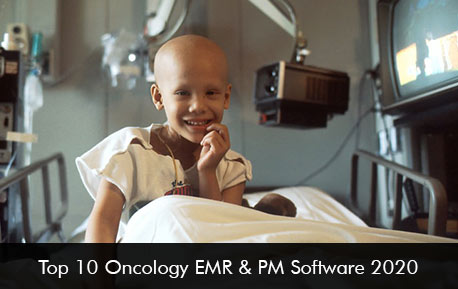The higher stakes of characteristic diagnosis, treatment plans makes it imperative for an Oncology or Hematology practice to have a customizable Oncology Electronic Medical Records (EMR) and Practice Management (PM) Software.
Errors for an Oncology practice in documenting patient encounters can have dire consequences. Due to which, an oncology specialization requires a specialty-specific EMR system so that workflow can be streamlined all the protocols of documentation and quality care can be followed correctly.
Since the HITECH Act introduced Meaningful Use the medical and healthcare industry has been in a flurry to find the right EMR system. Oncology EMRs best through well-documented claims and improved care coordination best suit all the requirements of an oncology practice of any size.
Features of Oncology EHR & PM Software
To select the right EHR software targeted especially for an oncology specialty practice it is important to have a good understanding of how the software works. According to the 2020s Oncology Software Buyer’s Guide, enlisted below are the key features:
Oncology specific Templates – Oncology EMR software should offer customizable pre-designed templates for SOAP notes taking (e.g. applications for cancer registry, reporting, and clinical trials, etc).
Integrated Digital Imaging – Oncology EMR Software should be compatible with all the diagnostic image formats e.g. ultrasound, MRI, CT, and PET scans, etc.
ICD/CPT Codes – This makes it easier to identify the type of cancer, map its stage and recommend options for treatment.
Workflow Management – Oncology EMR Software should be able to record and store large volumes of data for long term usage. It should optimize clinical workflows by providing clinical decision support.
Lab Interface – Oncology EMR Software should provide automated digital retrieval and storage of lab results
Integration of Patient Education Materials – Oncology EMR Software through a patient portal should help educate the patients throughout the process.
Chemotherapy Management & Automation – Oncology Electronic Medical Records (EMR) Software should incorporate drug administration, inventory management, and billing. In addition, automated dosing, scheduling, and ordering make orders easy to read and prevent errors.
Oncology Dashboard – Oncology EMR software must provide an insightful real-time dashboard with patient charts, profiles, billing processes, scheduling, etc.
Registry for Clinical Trial – EMR Software should offer analytics to track clinical trial, current research as well as demographic values of patients to support findings.
Top 10 Oncology Software by EMRSystems
EMRSystems values its customers and has compiled a list of the 10 best and top-rated Oncology EMR & PM software solutions for physician practices in 2020. The list is completely based on authentic customer reviews and ratings:
-
Athenahealth EMR Software
-
PrognoCIS EMR Software
-
Kareo Clinical EMR Software
-
AdvancedMD EMR Software
-
NueMD EHR Software
-
MOSAIQ EMR Software
-
ALTAI Oncology EHR Software
-
ARIA EMR Software
-
iKnowMed EHR Software
-
OncoEMR Software
How to Choose Oncology EHR Vendor right for your practice?
Now that you’ve shortlisted the oncology EHR & PM software vendor the following 3 factors will help you narrow the selection down to Software that fills your practices’ clinical and management requirements.
Size of Your Practice – EMR systems often follow the modular approach and are designed by keeping certain factors (e.g. the number of users, scalability, and support required, etc.) in mind.
System Design (Cloud-based vs Server-based) – System design depends on practices’ personal choice and comfort level. If your practice feels more comfortable having the system on their computer, server-based designs are the way to go otherwise cloud-based software design provides access to the authorized devices anytime anywhere.
Certification – For oncology, the certification you should be looking out for is by the ONC-Authorized Testing and Certification Body (“ONC-ATCB”). They are responsible for making sure your vendor meets Meaningful Use objectives and is HIPAA compliance resulting in incentives.
Cost of implementation – The Journal of Oncology Practice in Usability Considerations in Oncology Electronic Medical Records by Michael J. Hassett stated that ” 54% practitioners said that their EMR increased total operating costs”. Most of the practitioners and medical officers when inquired about the features have told our representatives that they perceive them as a marketing gimmick. Our advice is to actually look at your clinical and administrative workflow to determine the aspects of the EHR you need and also consult your provider to ensure that the Oncology Software you are only paying for relevant features.







